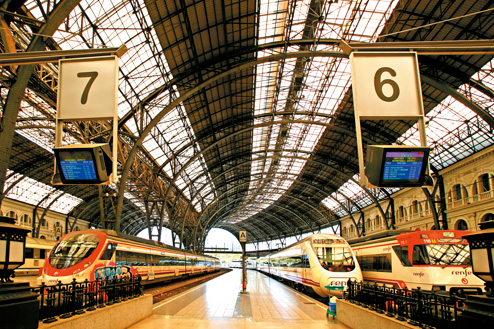The General Strike
Through the early 20th century, Barcelona endured similar troubles to those affecting other industrialising nations. Growing disparity in wealth and the competing philosophies of the political left and right began to create social rifts. These were exacerbated by Spain’s economic problems during the Great War (1914 - 1918), which caused factories to close and mass unemployment. The capitalist classes feared a Russian-style revolution and so leaned heavily on workers’ unions such as the CNT (Confederación Nacional de Trabajo) – many of whose members were blacklisted or even assassinated. Anarchist unionist activity grew as a result, leading to the general strike of 1917, which ended in bitter riots and 33 deaths in Barcelona. Another general strike followed in 1919, when a local hydroelectric plant reduced workers’ wages. The Primo de Rivera dictatorship (1923 - 30) banned all organisations and literature related to anarchism, which resulted in anarchists resorting to ever more violent methods. Primo de Rivera, a monarchist, abolished the Catalan commonwealth in 1925. Curiously enough, he was a Catalan himself by birth.













